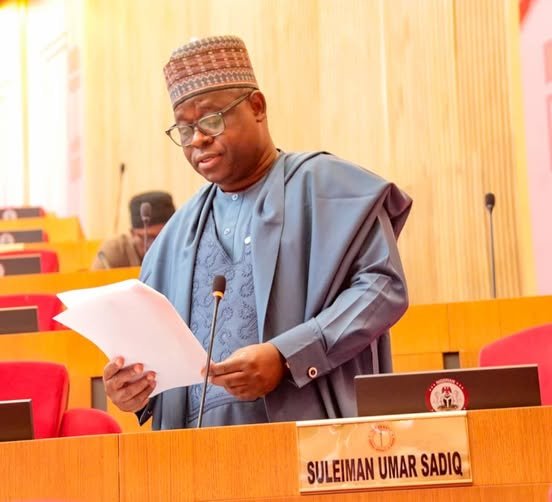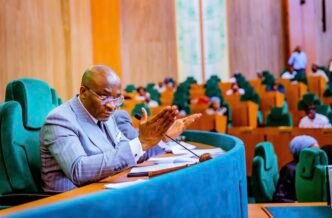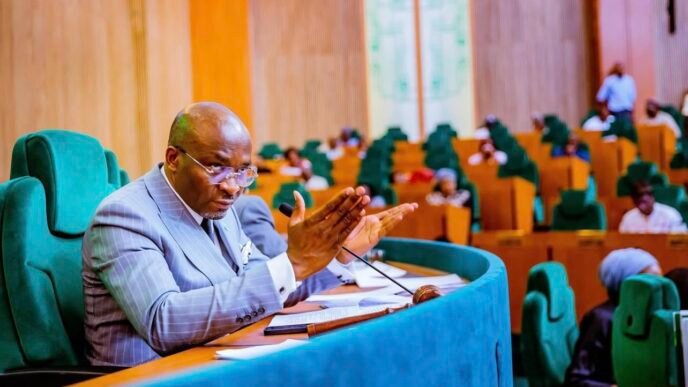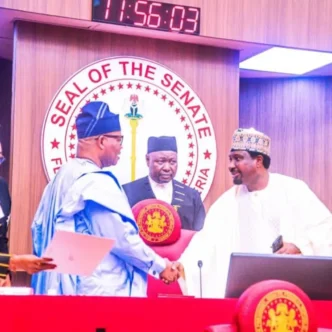On Tuesday, 4th Novermber, 2025, the Maritime Zones, 2025 Bill scaled second reading. Sponsored by Senator Suleiman, Umar Sadiq, who represents the Kwara North Senatorial District, the primary objective of SB.02 is to repeal the older Exclusive Economic Zone Act and the Territorial Waters Act, both of which have guided the governance of Nigeria’s maritime areas for many years.
This new act is designed to not only define and regulate the various maritime zones of Nigeria but also to ensure that these regulations align with international standards, particularly the United Nations Convention on the Law of the Sea (UNCLOS).
The existing legislative framework governing Nigeria’s maritime territories has been criticized for being outdated and not adequately responsive to the changing dynamics of maritime governance and security. The introduction of the Maritime Zones, 2025 aims to address these concerns by creating a cohesive structure for better management of maritime resources and protection of national sovereignty over ocean territories.
One of the cornerstones of the new bill is its alignment with UNCLOS, a landmark international treaty that provides a legal framework for the conservation and management of the oceans and their resources. With over 160 countries being party to the convention, adopting UNCLOS principles into national law underscores Nigeria’s commitment to international collaboration in maritime affairs.
The committee process that follows the Second Reading is crucial in shaping the final form of the bill. Senate committees will delve into the specific provisions of SB.02, scrutinizing how the new law will be implemented and what implications it will have for various stakeholders, including fishermen, shipping companies, and coastal communities. This stage will also offer opportunities for amendments that could enhance the bill’s effectiveness and address any lingering concerns.
The introduction of the Maritime Zones, 2025 comes at a time when the significance of maritime resources has never been more pronounced. With a vast coastline and rich marine biodiversity, Nigeria stands at the forefront of numerous economic opportunities, from fisheries to oil and gas exploration. As a developing nation, maximizing the benefits from these marine resources is vital for Nigeria’s economic growth and sustainability.
Moreover, the enhancement of Nigeria’s maritime laws brings with it a reinforced framework for addressing issues related to maritime security, including piracy, illegal fishing, and oil theft. An effective regulatory environment is essential for safeguarding Nigeria’s territorial waters against these transnational threats that undermine economic stability and development.
Additionally, the new legislation aims to foster an environment conducive to investment in the maritime sector. By clarifying the legal landscape, potential investors can be assured that their rights and interests will be protected within Nigeria’s maritime zones. This assurance can lead to increased foreign direct investment in areas such as shipping, logistics, and marine tourism, which can further stimulate economic growth.
Public engagement will also be vital in the subsequent stages of this legislative process. It is essential for stakeholders, including local communities, industry representatives, and environmental advocacy groups, to voice their opinions and contribute to the ongoing discussions surrounding the bill. This inclusive approach can help ensure that the final legislation reflects the needs and aspirations of all Nigerians who depend on the country’s rich marine resources.
As Nigeria moves forward with the Maritime Zones, 2025 bill, the commitment to modernizing laws that govern maritime territories not only positions the country favorably within the context of global maritime law but also enhances the prospects for sustainable marine resource management. The road ahead may involve challenges and negotiations within the committee and beyond, but the groundwork laid by this bill signals a dedication to reform that could serve as a model for maritime governance in the region.













